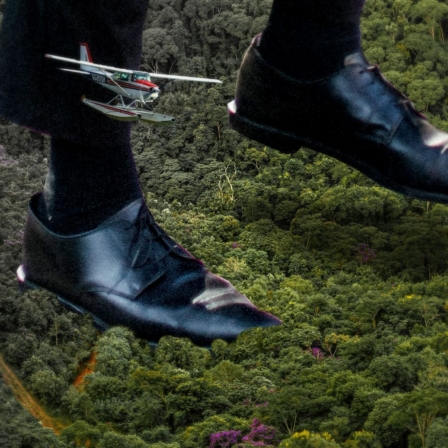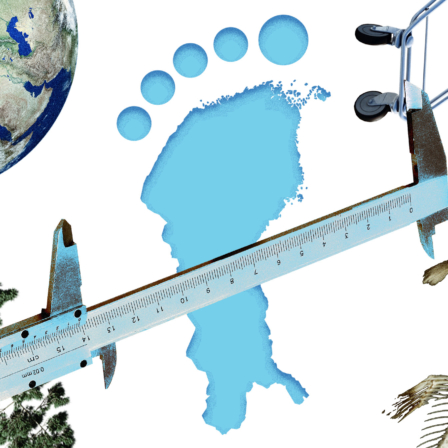How do the Christmas chocolates or packet of coffee you bought at the supermarket affect biodiversity in the country where the raw materials for them come from? How does building a new house or surfing social media affect biodiversity?
Reducing our impact on nature – in other words reducing our biodiversity footprint – is an essential goal because our economy, well-being and health rely entirely on nature. So far, both companies and consumers have lacked adequate tools to assess the adverse effects of their activities on nature.
Fortunately, work to develop biodiversity footprinting is gathering pace around the world, and Jyväskylä University is at the forefront of this development. A method for calculating a company’s biodiversity footprint has already been tested in a joint project of the Finnish Innovation Fund Sitra, S Group and Jyväskylä University – the aim of which is to assess the biodiversity impact of S Group’s operations.
The development of the biodiversity footprint calculation method is now being boosted by the launch of a joint project by Sitra, the Nokia technology company and Jyväskylä University.
Sinua saattaisi kiinnostaa myös
With funding from Sitra, Jyväskylä University is paving the way for an international standard for biodiversity footprint calculation. The aim is to create a common language for comparing the best measurement methods currently in use. The researchers will explore how the biodiversity footprint measures being developed around the world and the biodiversity impacts on different ecosystems can be made consistent and comparable.
“The international field of biodiversity footprint measurement is progressing rapidly, with the work done by the University of Jyväskylä being one of the global frontrunners. However, there are many different measurement approaches being developed, with little common language yet between them. To achieve a common international standard would be a game changer for all the businesses and other organizations that strive to measure their biodiversity impacts. Sitra is excited to fund a project that aims to pave the way for precisely that,” says Lasse Miettinen, Director of Sitra’s Sustainability Solutions theme.
New tenure track professorship to be created at Jyväskylä
In December 2023, Nokia announced that it would support Jyväskylä University in developing biodiversity footprint measurement for companies and other organisations. According to Nokia, this cooperation is in line with its sustainability strategy and supports its broader, long-term commitment to combating climate change and minimising environmental impact.
Nokia’s support and the Sitra-funded project have together enabled the establishment of a new tenure-track professorship at Jyväskylä University’s School of Business and Economics. The professorship will focus on developing a global measurement of biodiversity footprints.
“The high-level COP15 United Nations conference clearly showed that biodiversity loss and climate change remain two of the biggest threats to our planet. Our University Donations Program aims to tap into the brightest minds in academia to explore high impact areas with future relevance to Nokia and society such as environment, nature, future skills and technologies like 6G, Quantum and AI,” says Subho Mukherjee, Vice President, Sustainability at Nokia.
“In addition to climate change, biodiversity loss is one of the largest global sustainability challenges. Researchers at the Jyväskylä University School of Business and Economics, together with the School of Resource Wisdom, JYU. Wisdom, have concluded internationally pioneering work to calculate the biodiversity footprint of companies. The assessment of biodiversity impacts is the first step so that we can actively start reducing the impacts and contribute to reversing the biodiversity loss. We are very thankful for Nokia’s significant support for developing the biodiversity footprint calculation of companies,” says Jari Ojala, Rector of the University of Jyväskylä.
In a separate project funded by Sitra, Jyväskylä University is also among the first organisations worldwide to start investigating the impact of Finnish lifestyles on biodiversity and possible ways to reduce it. The results of this project should be available soon. Many Finnish municipalities and cities, including Tampere and Lahti, are also working on or have already completed projects to calculate their biodiversity footprint.





















Recommended
Have some more.